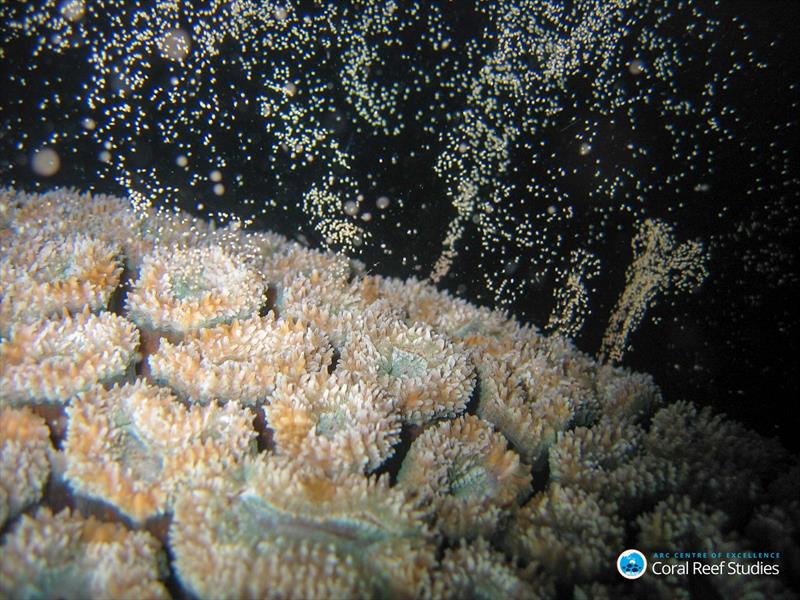
Corals roll with the punches
by ARC Centre of Excellence for Coral Reef Studies 8 Sep 2021 08:53 UTC

Corals that are better than average at survival, growth and resisting bleaching stress can pass these advantages on to their offspring © Andrew Baird
A new study suggests corals may be able to cope with climate change in the coming decades better than previously thought - but will still struggle with ever-faster rates of climate change.
Lead author Kevin Bairos-Novak is a PhD candidate at the ARC Centre of Excellence for Coral Reef Studies at James Cook University (Coral CoE at JCU). He said the rate at which corals can adapt to climate change depends on what is passed down from their parents.
"We looked at all previous coral studies examining what is called 'heritability' and this allowed us to look at how parent corals' survival under environmental stress is likely to be passed down, through genes, to their offspring," Mr Bairos-Novak said.
"We found their ability to pass on adaptive traits is maintained despite increasing temperatures," he said.
"In particular, corals that are better than average at survival, growth and resisting bleaching stress under future ocean conditions should be good at passing those advantages on to their offspring."
However, while the study is good news, the authors warn that making the most of this capacity for adaptation will require reducing the current rate of global warming.
"Though temperature increases don't appear to influence the ability of corals to pass on adaptive traits, the damage that we are already seeing to coral reefs from climate change tells us that the current rates of change are too fast for coral adaptation to keep up," said co-author Associate Professor Mia Hoogenboom, also from Coral CoE at JCU.
"Climate change is rapidly intensifying across the globe," said co-author Professor Sean Connolly from the Smithsonian Tropical Research Institute. He said if climate change is too fast then there isn't sufficient time for evolution to generate new variations to cope with even more stressful conditions.
"Adapting to change means a species can persist in an altered environment for longer," Professor Connolly said. "But as new conditions arise, evolution needs time to generate new variation in coral traits, such as temperature tolerance, which can then spread in the population if they are beneficial."
"So, if we can curb climate change, and stabilise temperatures, many coral species will have a shot at adapting to warmer temperatures."
The study is a synthesis of 95 trait measurements across 19 species of reef-building corals.
"The fossil record tells us that times of rapid environmental change are a major challenge to life, and can lead to very high rates of extinction," Mr Bairos-Novak said. "This is a challenge faced by all living organisms during such times."
"However, our findings show that corals are fighters. They are good at passing beneficial traits onto the next generation and the next—helping them cope with the stresses they face."
"And this is what may help them navigate the next few decades better than we previously thought."
Paper
Bairos-Novak K, Hoogenboom M, van Oppen M, Connolly S. (2021). 'Coral adaptation to climate change: Meta-analysis reveals high heritability across multiple traits'. Global Change Biology. DOI: 10.1111/gcb.15829.